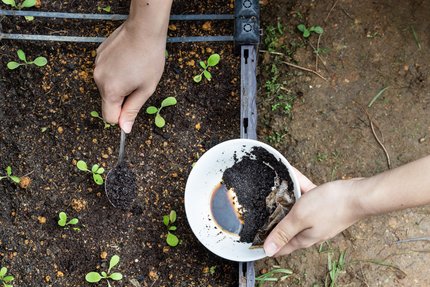Fair trade certification can be expensive and difficult to obtain. It is common for small farms in Indonesia to use alternative and sustainable methods while not having a fair trade label. For example, some farmers plant shade trees, which helps protect the environment and improve the quality of their coffee beans. Planting shading trees increases biodiversity, reduces the need for pesticides, and mitigates the negative impacts of climate change by lowering the temperature and provide protection from extreme weather events.
Each stage of the coffee supply chain has an impact on the environment and on the people who work on it. The United Nations Sustainable Development Goals (SDGs) are a set of 17 goals that aim to create a better world for all by 2030. The SDGs are relevant to coffee production in many ways. For example, SDG 1 - No Poverty, SDG 2 - Zero Hunger; 3 - Good Health and Well-Being relate to fair wages for coffee farmers as well as access to a healthy work environment and healthcare facilities.
Sustainable ways of consuming coffee
It is easy to feel powerless when trying to consume in a more sustainable way, but there are many things that we can all do to help. Even small changes can make a big difference.
Here are a few changes you can make in your day-to-day life:
- Compost your coffee grounds. This helps to reduce waste and create nutrient-rich soil.
- Bring your own reusable mug for takeout coffee. This helps to reduce waste and save trees.
- Refuse non-sustainable straws and coffee cup bases. These items are often single-use and made of plastic, which is a major source of pollution.
- Buy beans with a fair trade label or from other accredited farms. This helps to ensure that farmers are paid a fair price for their coffee and that their workers are treated well.
- Support companies that adhere to responsible sourcing practices and use compostable packaging.
- Make other lifestyle changes that help to mitigate climate change more broadly, such as buying local products, saving energy, and minimising food waste.
